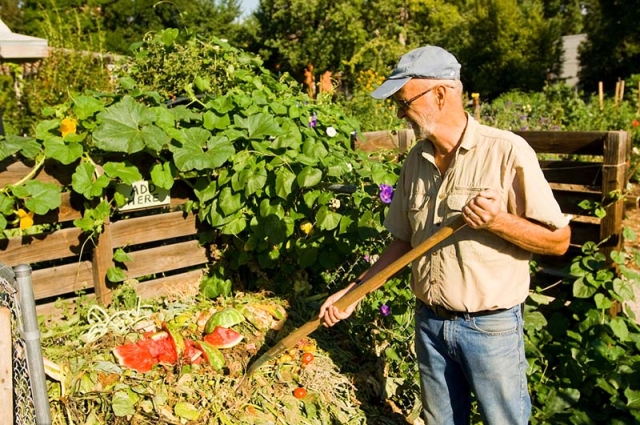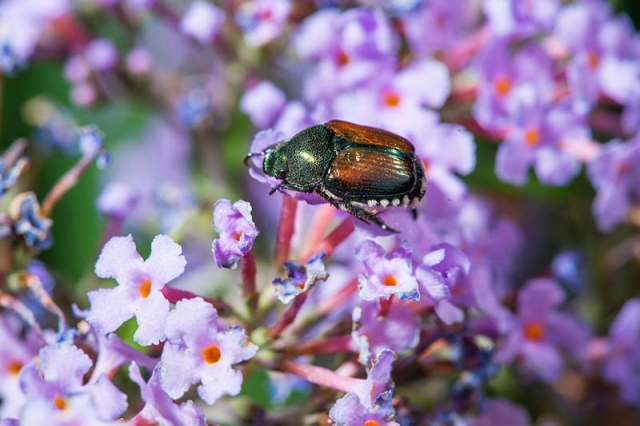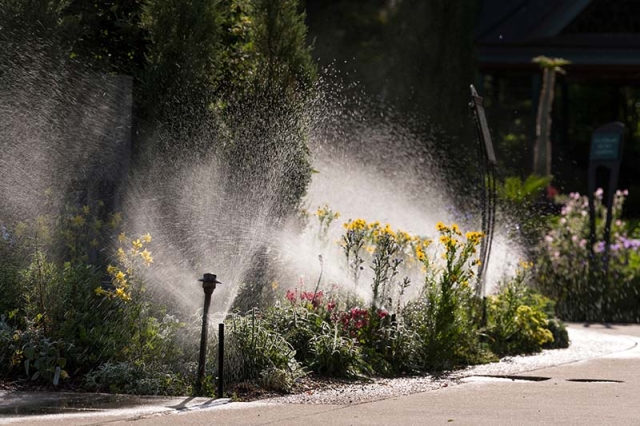7 Ways to Prep for a Greener Garden
As the growing season begins winding down, it is time to look ahead to next year and how we can continue improving our gardens and landscapes while becoming more sustainable. Here are 7 easy ways to do so:
Start a compost bin/pile
Composting is easy and fun and will reduce the amount of household organic waste (e.g. kitchen scraps, biodegradable paper products, etc.) that would otherwise end up in landfills. Additionally, a compost pile will provide you with high quality decomposed organic matter packed with nutrients and microorganisms that will improve your garden soil and allow your plants, trees and shrubs to reach their maximum potential.

Allow leaves to decompose naturally
In autumn, deciduous trees drop their leaves, making our gardens seem messy. These leaves are incredibly beneficial to your soil and plants as they help insulate new plantings during cold winter months and most decompose by spring to infuse the soil with nutrients and microbes. An easy way to ensure that all the fallen leaves decompose by spring is to rake them into small piles and mow over them to break them down first. Then, simply reapply the leaf mulch to your garden beds generously.
Reduce the size of your lawn area/increase the amount of garden space or hardscape area
This is an excellent way to reduce your overall water consumption and make your garden more efficient and sustainable. Removing excessive turf areas will also help minimize the number of Japanese beetles that can grow and thrive as grubs in lawn areas.

Install a rain barrel
Adding a rain barrel to your garden is an excellent way to reduce your dependency on the municipal water supply. Plants also grow better with rainwater as it is free of chemicals such as chlorine and has a lower pH which allows plants to uptake nutrients more effectively.
Plant drought-tolerant trees and shrubs
Adding drought-tolerant trees and shrubs enhances your garden dramatically while providing shade and habitat for birds, pollinators and beneficial insects. As trees mature and provide a canopy above the garden, they will aid in reducing solar heat gain in and around the home and help reduce evaporation during the hottest months of the year.

Use organic seeds and fertilizers
Plant organic, non-GMO seeds and switch out chemical fertilizers for organic fertilizers. Chemical fertilizers add harmful salts to the soil over time and destroy beneficial microbes and fungi in the soil that plants rely on to grow and thrive. They can also leech into ground water and run off into nearby streams and water bodies, causing harm to aquatic life. Selecting organic fertilizers that release slowly over the season and don’t contain excessive amounts of nitrogen and phosphorous can help improve soil long term and help your garden become greener and more sustainable.
Water smart
Water your gardens in early morning or late evening when temperatures are cooler and water loss from evaporation is minimized. Soaker hoses and drip systems reduce water loss even further by releasing water directly to the roots of plants. If watering in the evening, allow enough time for the foliage of plants to dry off before nightfall to minimize problems such as powdery mildew.

Add new comment